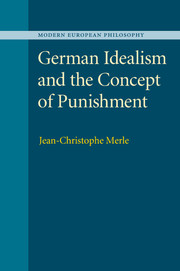Introduction
Published online by Cambridge University Press: 04 August 2010
Summary
A nearly total unanimity prevails with regard to the fundamental necessity of a public penal system. Even among those few who advocate the abolition of all punishments, a large majority advocates instituting alternatives to the usual prison sentence, rather than calling for the abolition of punishment without anything to replace it. When seen in this light, the existence of public penal law can be regarded as being completely justified. The manner in which punishment might actually be justified, however, remains just as controversial a subject as determining the appropriate amount of punishment. This is because these issues are closely related to one another.
Every theory of punishment currently advocated shares the rejection of the system of punishment which was prevalent in the early modern age. This rejected system, illustrated by such penal provisions as the Constitutio criminalis Carolina, enacted in 1532, was placed in opposition to the modern system of punishment by Michel Foucault in Discipline and punish. The early modern system differs from the modern system in the sense that the latter prefers either prison sentences or (if any) the most painless and most decent death sentences possible. It is worth noting that well into the eighteenth century more than one hundred crimes were capital offenses. Torture, which was already systematically employed as an interrogation method, was often a component of the punishment, as well as constituting an intensification of the death sentence.
- Type
- Chapter
- Information
- German Idealism and the Concept of Punishment , pp. 1 - 14Publisher: Cambridge University PressPrint publication year: 2009
- 1
- Cited by



